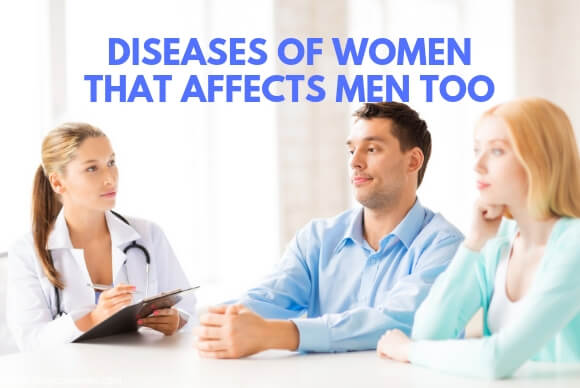Diseases of Women That Affects Men Too
Gender or sex of an individual plays a major role in the pathogenesis of certain diseases and infections. However, it is very important to differentiate between the disorders that are predominant in certain genders versus disorders that are exclusive to a particular gender. This approach not only helps in early detection of life-threatening conditions, but can also help in optimal management of such health issues via patient education and awareness.
Listed below are some common diseases that are generally perceived as women issues; but are also reported in men. These are:
- Breast Cancer: Malignancy of breast is the most frequently reported malignancy in females. According to new study, females are 100 times more likely to develop cancer of breast, but some males can also develop this cancer. Certain risk factors that aggravates your risk of developing breast malignancy are; alcohol consumption, positive family history, Klinefelter’s syndrome and others.
- Osteoporosis: Negative changes in bone mineral density as part of aging process or hormonal irregularities can make your bones weaker and porous. Needless to say that this significantly increases the risk of developing persistent bone pain, high risk of developing bone fractures, poor healing and impaired mobility. Females tend to develop more severe and early symptoms (usually in 5th decade) versus most males develop symptoms of osteoporosis in late 60s and 70s. The treatment revolves around supplementation
- Anorexia Nervosa: Anorexia nervosa is a serious eating disorder that affects more females than males, and is characterized by adoption of extreme measures to prevent weight gain. This includes severe calorie restriction and self-starvation. Men who suffers from anorexia often have orthorexia as well – a condition marked by avoidance of several food groups by the individual due to false perception that those food groups are hazardous for their health.
- Male menopause: The male counterpart of female menopause is andropause (also referred to as male menopause) that is characterized by significant reduction in the serum testosterone levels that leads to weight gain, loss of sexual vigor, development of breast tissue (gynecomastia), and osteoporosis. The treatment/ management revolves around lifestyle modification (incorporation of exercise, strength training and dietary changes) as well as testosterone replacement therapy.
- Lupus: An autoimmune condition that is marked by activation of one’s own defender cells against normal tissues. The prevalence of this disease is much higher in females as compared to men (90:1), but nonetheless can present with serious symptoms in severe cases. It is also noteworthy that the identification of positive cases in males is fairly low as most cases remain undetected.
- HPV: Human Papilloma Virus affects females more frequently than males and is associated with a high risk of complications such as cervical malignancy and impaired fertility. It is however important to mention that HPV infection is a sexually transmitted disease and affects males as well. In poorly managed cases, the risk of developing complications like anal malignancy and cancer of throat is also very high. More awareness on this subject has led to the development of HPV vaccine in young males to reduce the risk of contracting this infection.

